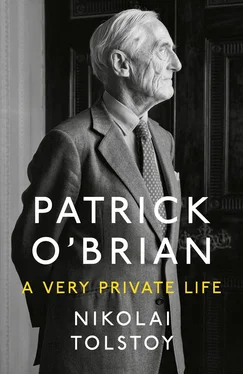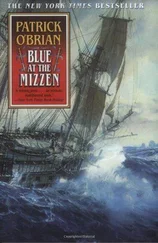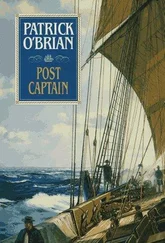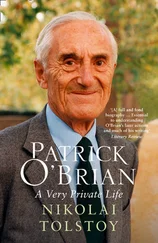The Portugal visited by Patrick appeared little changed since Wellington’s day. Patrick noted with pleased surprise: ‘No advertisement posters yet in Portugal. None at all.’ On the road to Lisbon:
As soon as we passed out of the Algarve the hideous man’s hat (black) worn over cotton scarf began to vanish – women here wear velour hat, flattened, with broad coloured ribbon or wide straw hat. Shoes rare – stockings cut at ankle for bare foot. Men in woollen stockings caps dangling to neck. Pleasant boy’s faces under black hats (bow behind).
Lisbon proved well up to expectation: ‘The sudden view of the Tagus with Lisbon the other side was as grand as anything I have ever seen.’ After strolling into the centre, ‘we wandered along the river and admired a square-rigged Portuguese naval training ship’. Amid the capital’s architectural glories, my mother was rewarded by a glimpse of ‘a windscreen wiper for sale called Little Bugger’.
Making their way across country to the northern frontier, the travellers encountered weather and countryside less congenial. Back in Spain, Patrick attended mass at Santiago, but was strangely unimpressed by town or cathedral. Passing Corunna, they became alarmingly trapped for a while in a snowdrift beyond Villalba. Fortunately the summit of the hill proved not far, and Patrick stumbled behind on foot as my mother gingerly enticed the car towards it. ‘When we reached the sea at Ribadeo (a very pleasant looking place … hundreds of duck down on the water; tufted duck mostly – and every promise of trout, if not of salmon too) we suddenly saw the Cordillera, pure white with deep snow.’
Passing through Basque country, where ‘the red berets were worn quite naturally’, they came to Guernica, scene of an infamous German air raid during the Civil War – ‘and a melancholy sight it was – every building new, almost, and still a number of ruins’. Driving as fast as they could along precipitous coastal roads, frequently blocked by landslides, they finally gained the frontier at Irun. ‘A toll-bridge, and we were in France again. French customs pleasant, sensible – Budd’s utter fury at their touching sacred car and even prodding food parcels.’
The fine French roads sped them across country, and on 18 February 1953, ‘in spite of the snow we were home at half past five, with an enormous post’. The news was generally good, especially a welcome cheque for £100 from Rupert Hart-Davis. Their neighbours the Rimbauds were warmly welcoming, as was their cat Pussit Tassit (who had managed to become pregnant). ‘How pleasant it is, our own place, and how queer the familiarity.’ Patrick calculated that they had travelled 3,674 miles, at a total motoring cost of 17,236 francs (about £15).
They had been away from home for a month, the longest foreign tour (not counting England) in which they ever engaged. Although there is little direct evidence of the use to which it may have been applied in his literary work, [fn2] Конец ознакомительного фрагмента. Текст предоставлен ООО «ЛитРес». Прочитайте эту книгу целиком, купив полную легальную версию на ЛитРес. Безопасно оплатить книгу можно банковской картой Visa, MasterCard, Maestro, со счета мобильного телефона, с платежного терминала, в салоне МТС или Связной, через PayPal, WebMoney, Яндекс.Деньги, QIWI Кошелек, бонусными картами или другим удобным Вам способом.
there can be no doubt that Patrick’s extended immersion into the dramatically archaic world of Spain and Portugal as it was then played a significant function in conferring the astonishing gift for immersion in past worlds which represents so marked an aspect of his historical fiction. Nearly thirty years later he came upon his diary record, noting wistfully: ‘I read abt our journey in darkest Spain 1953 – forgotten or misremembered details – how it all comes to life!’
At the time, however, it seems that Patrick was pondering further work on contemporary themes. Shortly after their return, he reverted to his planned series of short stories. In March he wrote ‘The Walker’, and on 7 April my mother ‘Sent off The Walker, The Crier, The Silent Woman & The Tailor to C[urtis]B[rown] New York.’ Unfortunately, the last three tales have not survived.
Although the journey around the Iberian peninsula had proved both entertaining and (it was hoped) an inspiring source for future writing, before long Patrick and my mother found themselves reverting to continued frustration over their mode of existence in their cramped quarters in the rue Arago. During a brisk March walk up to the Madeloc tower, they ‘Agreed on discontent with present way of life: sick of peasants so close to our life, need garden & hens & bees so as to be able really to save mon[ey].’
Time appeared slipping by, without adequate achievement to slow its passage. In April Patrick received news from his family in England that his once-dreaded giant of a father had suffered a stroke. Patrick, who throughout his life kept in regular touch with his family, must already have been aware of his declining health. A profoundly formative era of his past, wretched though it had largely been, appeared to be approaching extinction within the vortex of vanished years. It was at this time (1953) that he began work on an autobiographical novel, which in its final form completed years later evoked years of childhood and adolescence, filling him with a complex amalgam of nostalgia, resentment, and shame. [fn3] Конец ознакомительного фрагмента. Текст предоставлен ООО «ЛитРес». Прочитайте эту книгу целиком, купив полную легальную версию на ЛитРес. Безопасно оплатить книгу можно банковской картой Visa, MasterCard, Maestro, со счета мобильного телефона, с платежного терминала, в салоне МТС или Связной, через PayPal, WebMoney, Яндекс.Деньги, QIWI Кошелек, бонусными картами или другим удобным Вам способом.
His work on this project, which preoccupied him intermittently over the next two years, will be recounted in due course. As ever, my mother played a strongly supportive role in the writing, and was deservedly gratified by Patrick’s heartfelt acknowledgement: ‘P. gave me immense pleasure by saying he values me most as critic.’
Further matter for concern arose again concerning Patrick’s son Richard. Poor reports from school, together with a ‘horrible letter’ from his mother, persuaded Patrick and my mother to ‘decide to take R. & have him work for the school cert. with us, by a correspondence course’. The project was, however, postponed for the present, until July when Richard arrived for his summer holiday at Collioure.
Enterprising as ever, he ignored his mother’s apprehensive objections, cycling all the way from Dieppe, to whose Poste Restante my mother transmitted 5,000 francs for travelling expenses. [fn4] Конец ознакомительного фрагмента. Текст предоставлен ООО «ЛитРес». Прочитайте эту книгу целиком, купив полную легальную версию на ЛитРес. Безопасно оплатить книгу можно банковской картой Visa, MasterCard, Maestro, со счета мобильного телефона, с платежного терминала, в салоне МТС или Связной, через PayPal, WebMoney, Яндекс.Деньги, QIWI Кошелек, бонусными картами или другим удобным Вам способом.
Equipped only with a school atlas as guide, Richard arrived cheerful and excited at the beginning of August.
Читать дальше












